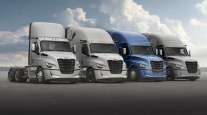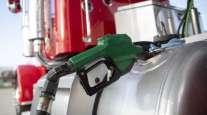Senior Reporter
CARB Fines Anheuser-Busch $500,000 for Pollution Violations

[Stay on top of transportation news: Get TTNews in your inbox.]
Wrapping up an investigation begun four years ago, the California Air Resources Board announced July 1 it fined brewing company Anheuser-Busch $500,000 for medium- and heavy-duty trucks that violated the state’s air pollution laws.
CARB launched its investigation in March 2015 and discovered that the St. Louis-based brewing company had failed to properly self-inspect 19 diesel trucks, as required by the state’s Periodic Smoke Inspection Program, to ensure they met state smoke emission standards.
In addition, CARB staff discovered that Anheuser-Busch was not in compliance with the state’s Truck and Bus Regulation because they failed to meet required compliance deadlines. A total of 86 trucks were noncompliant with the applicable in-use performance standards, according to the Sacramento, Calif.-based agency.

A CARB spokeswoman told Transport Topics the investigation of the Class 6 through 8 trucks was begun following an anonymous tip. The company’s fleet headquarters is in San Diego.
Anheuser-Busch did not immediately respond to a request for comment.
“California has some of the country’s poorest air quality and because of this, our laws are tough to protect public health. All businesses must do their part to ensure their fleets are fully compliant with California’s anti-pollution regulations that are designed to clean our air and protect our children,” CARB Enforcement Division Chief Todd Sax said in a release.
There have been 24 similar violations by other fleets this year, according to CARB.
Half of what Anheuser-Busch was fined, $250,000, will go to the Air Pollution Control Fund to support air pollution research. The remaining $250,000 will go to the South LA Urban Greening and Community Forestry Project, where it will fund the planting of 300 trees over a five-year period in the public parkways of disadvantaged communities in South Los Angeles County.
As part of the settlement, the company also agreed to instruct its vehicle operators to comply with California’s anti-idling regulations, ensure that staff responsible for compliance with the smoke-inspection program attend training classes, and provide documentation to CARB that the smoke inspection requirements are being met for the next two years.
Anheuser-Busch will begin fleet tests of Nikola’s zero-emisssions hydrogen-electric Class 8 trucks by the end of the year.
Meanwhile, a stampede of negligent fleets needing to prove regulatory compliance may soon begin.
Trucks registering with the state’s Department of Motor Vehicles beginning Jan. 1 must prove they are in compliance with the Truck and Bus Regulation.
The state’s latest annual data available, covering 2018, showed 80% of the trucks subject to California’s Truck and Bus Regulation were in compliance — but estimated that in 2020 about 82,000 trucks registered in California will still be noncompliant.
By requiring California-based trucks to meet that deadline next year in order to register, the state believes it can focus more resources on out-of-state fleets operating in California, which will help ensure a level playing field.
CARB estimated that in 2020 potentially 300,000 fleet trucks registered out of state but reporting mileage in California may be noncompliant.
The Truck and Bus regulation requires all heavy-duty diesel trucks operating in California to replace engines with cleaner engine technology — 2010 or newer engine model year — by 2023 to reduce particulate matter and emissions of oxides of nitrogen, or NOx, an atmospheric pollutant.



